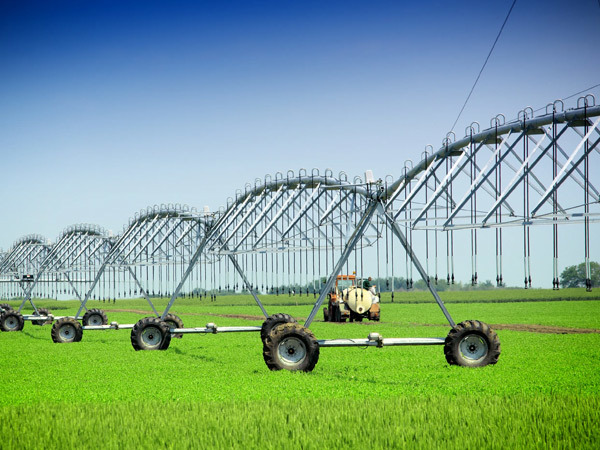Application scenarios and advantages of towable sprinkler
Release time:
Jun 12,2025
With its flexible and adaptable features, towable sprinklers occupy an important position in modern agricultural irrigation. Its application scenarios and advantages are closely related to the actual needs of farmland. The following is an analysis from two aspects: specific scenarios and core advantages:
With its flexible and adaptable features, towable sprinklers occupy an important position in modern agricultural irrigation. Its application scenarios and advantages are closely related to the actual needs of farmland. The following is an analysis from two aspects: specific scenarios and core advantages:
I. Analysis of core application scenarios
(1) Fragmented and irregular farmland
Typical scenarios: mountain terraces, hilly plots, small scattered plots in rural areas (single plot area <50 mu), or areas with narrow ridges and irregular shapes (such as triangles and trapezoids).
Application logic: The equipment can flexibly cross ridges and ditches through towing machinery, and can be quickly deployed without fixed installation, solving the problem of "difficult cross-plot operation" of traditional fixed sprinklers. For example: In the tea garden planting area in the mountainous area of Yunnan, towable sprinklers are transferred between terraces at different altitudes to achieve precise water replenishment.
(2) Seasonal and temporary irrigation needs
Cash crop scenarios: Vegetable greenhouses, orchards, nurseries and other crops that require periodic irrigation (such as strawberry planting period, grape fruit swelling period), or temporary farmland replanting (such as rice fields replanting corn).
Emergency scenarios: Emergency water replenishment after natural disasters such as drought and frost, or spraying operations when sudden pests and diseases occur. For example: When wheat in North China encounters spring drought, a towable sprinkler can be equipped with a mobile water tank to quickly reach the water-deficient plots for irrigation.
(3) Water source dispersion or mobile water supply scenarios
Areas without fixed water pipelines: Farmland far away from reservoirs and canals relies on dispersed water sources such as wells and ponds. The equipment can be quickly connected to different water sources through hoses.
Operation with its own water tank: Models equipped with a water storage tank (capacity 5-20m³) are suitable for remote areas without water sources such as grassland irrigation and vegetation replenishment in desert control.
(4) Cross-regional operation and rental services
Agricultural service scenarios: Agricultural machinery rental companies or plant protection service teams provide "mobile irrigation services" to different farmers through towable sprinklers to reduce the idle rate of equipment. For example: In the corn planting belt in Northeast China, agricultural machinery cooperatives use towed sprinklers to provide irrigation services to multiple surrounding farms. The annual operating area of a single device can reach more than 2,000 mu.
II. Core advantages and competitiveness
(1) Mobility and flexibility: low-cost and efficient transfer
No infrastructure investment required: no pre-buried pipes or fixed brackets are required, and it can be moved by towing (suitable for common agricultural machinery such as tractors and trucks). The equipment transfer time is ≤30 minutes, which is much lower than the translation sprinkler (track debugging is required) or the center pivot type (fixed center point is required).
Strong terrain adaptability:
Can pass through complex terrains such as slopes below 15°, muddy land, sandy land, etc. (wheel design + pneumatic tire shock absorption);
Small turning radius (some models ≤3m), suitable for narrow ridges (width ≥2m) operation, while horizontal sprinklers have higher requirements for land flatness (slope ≤5°).
(2) Cost advantage: low initial investment and maintenance
Low purchase cost: The price of a single machine is usually 50,000-150,000 yuan, which is only 1/5-1/3 of the center pivot sprinkler (300,000-1 million yuan), suitable for small farmers or small and medium-sized farms.
Low maintenance cost: Simple structure (no complex drive system), the main wearing parts are hoses (replacement cost ≤500 yuan) and sprinklers (single ≤200 yuan), and the annual maintenance cost is ≤5% of the original value of the equipment.
(3) Functional integration and scene adaptability
Multi-function expansion:
Combined with fertilizer tanks and pesticide boxes, it can realize the integrated operation of "irrigation + fertilization + spraying" (such as spraying foliar fertilizers simultaneously during irrigation in Xinjiang cotton fields);
Some models support "sprinkler irrigation + drip irrigation" switching, using sprinkler irrigation to replenish water during the seedling stage and switching to drip irrigation to save water during the growth period (such as the sunflower planting area in Inner Mongolia).
Irrigation volume is precisely controllable: the water pressure (0.2-0.6MPa) and the number of nozzles are adjusted by valves to adapt to the water requirements of different crops (such as 10-20mm per mu of irrigation for vegetables and 20-30mm per mu of corn).
(4) Resource utilization efficiency: water saving and energy saving
Water-saving advantage: The spraying uniformity of the atomizing nozzle is ≥80%, which saves 30%-50% of water compared with traditional flooding, especially suitable for areas with water scarcity (such as the arid northwest region).
Energy-saving design: The centrifugal pump power is 5-30kW, and the speed is adjusted as needed (frequency control) to avoid energy waste. Compared with fixed sprinkler irrigation machines, energy consumption is reduced by 15%-20%.
Learn more about industry dynamics
PRODUCT CENTER
CONTACT US
Address: 2-1-2301, Phoenix International Plaza, High-tech Zone, Jinan City, Shandong Province
Quality of service to win customer satisfaction


Shandong Yihe Agricultural Technology Co., Ltd.




